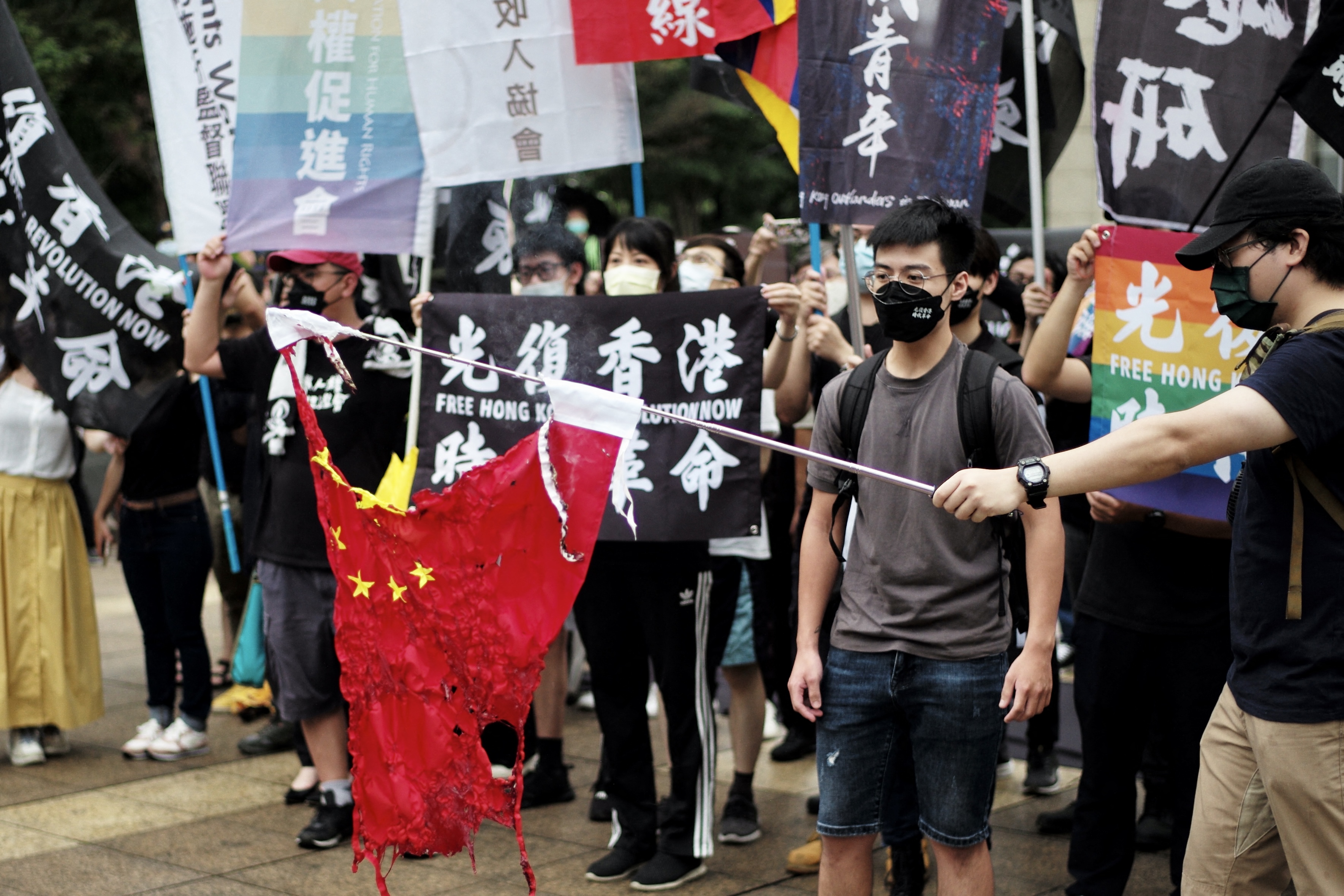Academics from Xiamen University in Fujian, China, recently outlined their vision for reshaping Taiwan following a potential unification effort with Beijing. The authors propose establishing a “shadow government” in advance to facilitate a smooth “regime change.”
This unpublished document surfaced online via the Washington, D.C.-based Center for Strategic and International Studies after its removal from Chinese social media.
China asserts sovereignty over Taiwan, vowing to bring it under its control, using military might if necessary. In recent years, tensions have escalated with increased military activities near Taiwan, especially after President Lai Ching-te took office in May.

Sam Yeh/AFP via Getty
The authors criticize the “one country, two systems” approach used in Hong Kong, stating it lacks persuasive power for Taiwan due to the turbulence seen during the pro-democracy protests in Hong Kong. They argue that offering Taiwan a lengthy adjustment period, as was promised to Hong Kong, would also be impractical.
Emphasizing the urgency of a “comprehensive takeover,” the paper suggests preparations for a shadow government and a committee to integrate post-takeover policies like legal frameworks and infrastructure changes.
Additionally, they propose cultivating a realistic environment in which to pilot these policies before implementing them in Taiwan. Local experts familiar with mainland norms could help ease the transition, and pro-unification individuals in Taiwan could also play an active role.
Despite these strategies, the paper acknowledges a significant decline in pro-unification sentiment among Taiwanese. Even the pro-Beijing Kuomintang party has begun leaning toward implicit independence, suggesting a rocky path ahead. Experts believe that any unification would not be welcomed by the Taiwanese populace, predicting considerable resistance.
China has warned of military action should Taiwan formally declare independence, while President Lai insists that Taiwan is already effectively independent. Recent polls reveal that a vast majority of Taiwanese prefer maintaining the current state of affairs, whether indefinitely or moving toward formal independence.
Neither the Taiwanese nor Chinese foreign ministries have commented on the document at this time.
